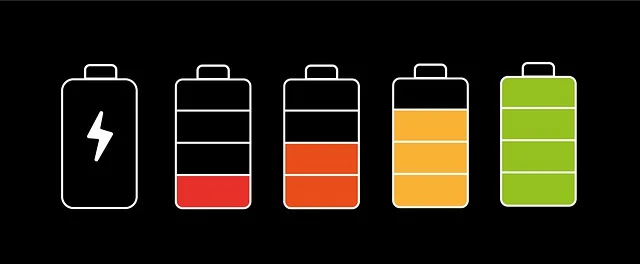How do batteries work?
Batteries are everywhere! From your smartphone to your car, they power the devices we use every day. But we don’t know how they actually work? How do batteries work?
A battery is essentially a container that stores chemical energy and converts it into electrical energy when required. It works like this:
Components:
Anode (negative side): This is where the electrons come from.
Cathode (positive side): This is where the electrons go from.
Electrolyte: A chemical medium that allows the flow of electrical charge between the cathode and the anode. How do batteries work?
Chemical reaction:
Inside the battery, a chemical reaction takes place between the anode and the electrolyte.
This reaction causes a build-up of electrons at the anode. How do batteries work?
Since the electrons are negatively charged, they want to move to the positive region – the cathode.
Flow of electrons:
When you connect a device to a battery, it completes the circuit, causing electrons to flow from the anode to the cathode through the device (providing it with power).
This flow of electrons is we call electricity.
Recharging (for rechargeable batteries):
When you recharge a battery, you’re essentially reversing the chemical reaction. How do batteries work?
An external power source forces the electrons to move from the cathode back to the anode, restoring the battery’s charge. How do batteries work?

What is a battery?
A battery is a device that stores energy and releases it as electricity when required. It powers many of our everyday gadgets, from smartphones to cars. How do batteries work?
Types of batteries:
Alkaline batteries: Commonly used in remote controls, watches, and toys. They’re single-use and need to be replaced once they’re exhausted.
Lithium-ion batteries: Found in Phones, laptops, and electric car. They’re rechargeable and have a long lifespan. How do batteries work?
Lead-acid batteries: Often used in cars. They’re also rechargeable and are known for their ability to provide high surges of power.
Why do batteries die?
Over time, the chemical reactions that produce electricity can cause the materials inside a battery to wear out. In rechargeable batteries, repeated charging can also wear them out, reducing their capacity. How do batteries work?
How to care for your batteries?
Keep cool: Avoid exposing batteries to high temperatures.
Regular use: Use rechargeable batteries regularly to maintain their health.
Proper storage: Keep batteries in a cool, dry place when not in use.
The Future of Batteries:
As battery technology continues to advance, researchers are working on:
Longer life: Developing batteries that last longer between charges.
Faster charging: Reducing the time it takes to recharge batteries.
Environmental impact: Creating environmentally friendly batteries that are easier to recycle and less harmful to the environment. How do batteries work?
How to Clean Battery Corrosion:
Batteries are an essential power source for many devices, but when they become corroded, they can become less effective or stop working altogether.
Steps to clean battery corrosion:
Safety first: Before you begin, make sure the device is turned off. If dealing with large batteries, such as car batteries, disconnect them carefully.
Assess the damage: Look for any signs of corrosion, which appears as a white, ashy substance around the battery terminals.
Mix the cleaning solution: Make a cleaning solution by mixing 3 tablespoons of baking soda with 1 tablespoon of water. This creates a paste that helps neutralize and remove acidic corrosion.
Apply the paste: Dip a cotton swab or old toothbrush into the paste and gently scrub the corroded areas on the battery terminals. Be careful not to drip the paste into the device.
Clean with water: Use a clean, damp cloth or paper towel to wipe away the baking soda paste and corrosion residue. Make sure the terminals are completely dry before reinserting the battery or reconnecting them.
Prevent future corrosion: Consider applying a thin layer of petroleum jelly or terminal protection spray to the cleaned terminals. This helps prevent corrosion by creating a barrier against dust and air.
Dispose of old batteries properly: If batteries are old or have severe corrosion, dispose of them according to local regulations. Many communities have recycling programs for batteries to reduce environmental impact.